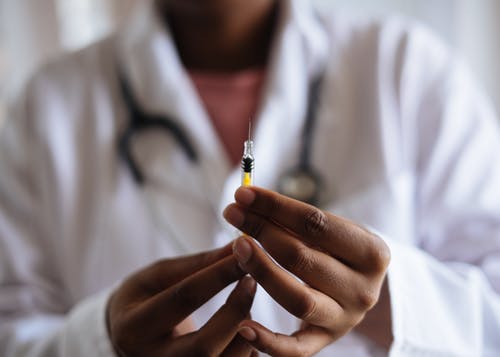Researchers in England find HPV rates have declined greatly due to the vaccine.
Researchers at King’s College in London have discovered that the HPV vaccination prevented cancer rates, eliminating around “450 cervical cancers and around 17,200 pre-cancers by the middle of 2019,” according to the paper funded by Cancer Research UK.
The human papillomavirus (HPV) is transmitted through skin-to-skin contact. The majority of individuals who have the virus get it through a genital HPV infection through direct sexual contact – however, it can be contracted in other ways. Many people live with it have no symptoms, which means transmission is possible without realizing it.
HPV can cause serious health problems, including genital warts and warts in the throat. HPV can also cause cervical cancer and other genital cancers as well as those of the head, neck, and throat. Luckily the vaccine reduces cervical cancer by “87% in women who receive it between the ages of 12-13,” the new study indicates.

Cervical cancer rates in general, according to the authors, “were reduced by 62% in women offered vaccination between the ages of 14-16, and 34% in women aged of 16-18 when they were offered the jab.” Overall, “The study found a 97% drop in pre-cancerous changes to cells in women vaccinated between the ages of 12 and 13, 75% in women vaccinated between the ages of 14 and 16, and 39% in women vaccinated between the ages of 16 and 18.”
“It’s a historic moment to see the first study showing that the HPV vaccine has and will continue to protect thousands of women from developing cervical cancer,” said Michelle Mitchell, Cancer Research UK’s chief executive. “Cancer Research UK has been funding research in this area for many years and we’ve been eagerly awaiting these results since the introduction of the vaccination program. Around 850 women die from cervical cancer each year in the UK, so we have the chance to save many lives.”
“Almost all cervical cancers are caused by HPV,” the team reported further. “The vaccine is most effective when given before sexual activity.” They added, “This year we have already seen the power of vaccines in controlling the COVID-19 pandemic. These data show that vaccination works in preventing some cancers.”
Professor Peter Sasieni, the study’s lead author, said, “It’s been incredible to see the impact of HPV vaccination and now we can prove it prevented hundreds of women from developing cancer in England. We’ve known for many years that HPV vaccination is very effective in preventing particular strains of the virus, but to see the real-life impact of the vaccine has been truly rewarding. Assuming most people continue to get the HPV vaccine and go for screening, cervical cancer will become a rare disease.”
Dr Vanessa Saliba, Consultant Epidemiologist in Immunizations at Public Health England, added, “These remarkable findings confirm that the HPV vaccine saves lives by dramatically reducing cervical cancer rates among women. This reminds us that vaccines are one of the most important tools we have to help us live longer, healthier lives. This fantastic achievement has been made possible thanks to the high uptake of the HPV vaccine in England. We encourage all who are eligible for the HPV vaccine to take it up when it is offered in school. All those eligible can catch up until their 25th birthday. Together with cervical screening, this will help to protect more women from preventable cases of cervical cancer.”
Sources:
Vaccine Reduced Cervical Cancer Rates by 87% in Women
‘It’s incredible’: HPV vaccine saves thousands of women from cervical cancer, UK study shows


Join the conversation!